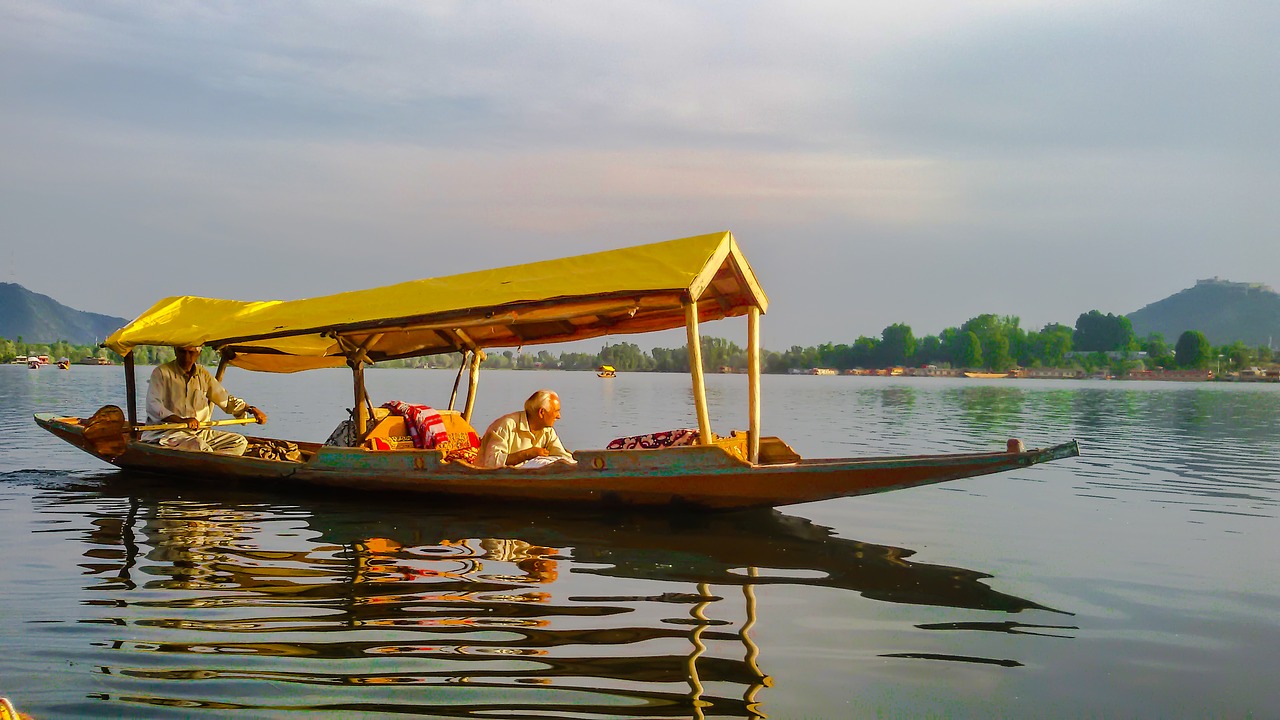In 2019, the Indian government ordered an internet shutdown a whopping 103 times on various occasions. Multiple High Courts, most recently in Uttar Pradesh and Assam, have ruled that internet shutdowns violate fundamental rights. Yet, in Jammu and Kashmir, there has been no respite. Why?
With 687 million people who use internet services, India has the second-highest number of internet users in the world, only behind China. While India aims to achieve its goal of total digitalisation, some regions continue to struggle to achieve a stable internet connection. This is largely due to the lack of infrastructure and the restriction on internet connectivity attributed to issues of national security in these regions.
Last year, internet shutdown was used as a tool by the government to slow down protests and curb dissent. In 2019, the Indian government ordered an internet shutdown a whopping 103 times on various occasions. The start of 2020 saw internet bans in many states owing to riots and uprisings against a constitutional amendment.
Taking suo moto cognizance of one such shutdown in Uttar Pradesh, the Allahabad High Court stated: “It is emphasized that in absence of internet all day to day activities standstill. The right to have continuous internet service in the present era is an extension of the right to live and, as such, discontinuation of that is in violation of Article 21 of the Constitution of India.” It also noted that such shutdowns obstruct the daily activities of businesses, including public and private offices.
Apart from occasional internet shutdowns, some regions have seen bans on internet services for extended periods, owing to national security concerns. In Jammu and Kashmir, for instance, a ban was triggered in August 2019 after the abrogation of Articles 370 and 35A. With educational institutions and offices resuming work from November 2019, internet services were scheduled to resume gradually. However, this was easier said than done. Many government offices remained closed and to make matters worse, the courts were not functioning at par due to the shutdown. Despite lofty affirmations by the administration, there was little hope of internet restoration. Later, in January 2020, 2G internet services resumed again, albeit only in certain areas.
After the outbreak of COVID-19, the nation went into lockdown, which resulted in the shutdown of education and business institutions. Status-quo was replaced with online classes, meetings through video conferencing, webinars, etc. These online activities require high-speed internet and steady connectivity, which is not accessible in many parts of the country because of varied infrastructural capabilities.
However, irrespective of infrastructure, students in J&K were unable to access online education due to the ban imposed on internet services. Despite human rights activists and advocates applying pressure on the government to restore 4G network services, it has been reluctant to do so. Officials reportedly stated that the 2G network is adequate for students to attend classes and for businesses to operate online. The government argued that fast networks can help militant organisations to plan insurgent operations by sending texts or spreading fake news. (However, it failed to understand that 2G networks are equally sufficient to execute such terrorist and insurgent activities.)
The Supreme Court, in 1994 and 1998, bestowed constitutional validity to the Terrorist and Disruptive Activities (Prevention) Act and the Armed Forces Special Powers Act, overlooking the fundamental rights of citizens and placing national security on a higher pedestal. When this was being examined by the Supreme Court in Foundation for Media Professionals v. Union Territory of Jammu and Kashmir (D. No. 10817/2020), constitutional issues relating to Articles 14, 19, and 21 arose. These issues revolved around equality before the law, protection of freedom of speech with reasonable restrictions, and personal liberty.
After a series of rebuttals, the Supreme Court ordered the formulation of a Special Review Committee which would review the restrictions imposed, keeping in mind the directions of the Court in the Anuradha Bhasin case. In the Anuradha Bhasin case, the Court directed that prohibition of internet access is valid but there must be ‘unavoidable circumstances’ to do so. The Court asked the Review Committee to decide the duration of the extension for a reasonable period.
This Committee consisted of the Secretary from the Ministry of Home Affairs, and the Department of Communications, and Chief Secretary of Jammu and Kashmir. The judiciary clearly mishandled the matter by giving the power of judicial review to executives of the government. Furthermore, the judgment set no deadline for the executives to complete their review.
The problem of terrorism has plagued Jammu and Kashmir for over three decades and it is difficult to say when terrorism will end. In this backdrop, the question to ask is: Should we deny citizens their personal liberties on the grounds of national security? None can deny the fact that national security is a top priority for a nation. Nevertheless, can fundamental rights be deferred or taken away indefinitely in the name of national security?
The Guwahati High Court raised a question along similar lines when there was a 10-day internet shutdown in Assam. The High Court observed that when the curfew has been lifted and there is no adverse law and order situation in the state, it is unreasonable to impose a ban on internet services. However, in this case, it was decided that the situation in Assam occurred due to internal uprisings, whereas the situation in Jammu and Kashmir was a risk to national security.
Although the government has told the Court that there has been an increase in terrorist activities in Jammu and Kashmir after the Jammu and Kashmir Reorganization Bill 2019, some questions remain unanswered, such as whether existing terrorist threats are substantial enough for an indefinite and complete suspension of 4G internet access to the whole Union Territory (UT). The evidence thus far does little to prove that restriction of 4G services has kept the acts of terrorism on a tight rein.
The Supreme Court is the guardian of the constitution; it is supposed to act as a check against unjust practices. Suspension of 4G in Jammu and Kashmir has made people’s lives unnecessarily difficult and has blown a wave of darkness all over the UT. From a constitutional perspective, the Supreme Court has failed to provide justice to the people of Jammu and Kashmir. Since the Solicitor General ardently stood in favour of 2G services, it is surprising that the Supreme Court is expecting any form of relief for the people of Jammu and Kashmir from the Review Committee.
In August 2020, the Attorney General, on behalf of the government, reportedly stated to the Supreme Court that it will resume 4G internet connections in two districts on a trial basis after 15 August 2020. After monitoring the situation for two months in these districts, the government will purportedly decide on the expansion of network connectivity to other areas. As of October 2020, the 4G internet connections are available only in Ganderbal and Udhampur and the government extended the ban on 4G internet services till 21 October 2020. Due to terror threats, the government said that it is “absolutely necessary” for the integrity and sovereignty of India.
Turning a blind eye to the fundamental rights of the citizens in the name of national security is a point of grave concern and blatant infringement of those very fundamental rights. It is time for the judiciary to redeem itself and uphold the fundamental rights of the people.
Kumar Kartikeya is a student of law. His areas of interest include public policy, constitutional law and political science.


